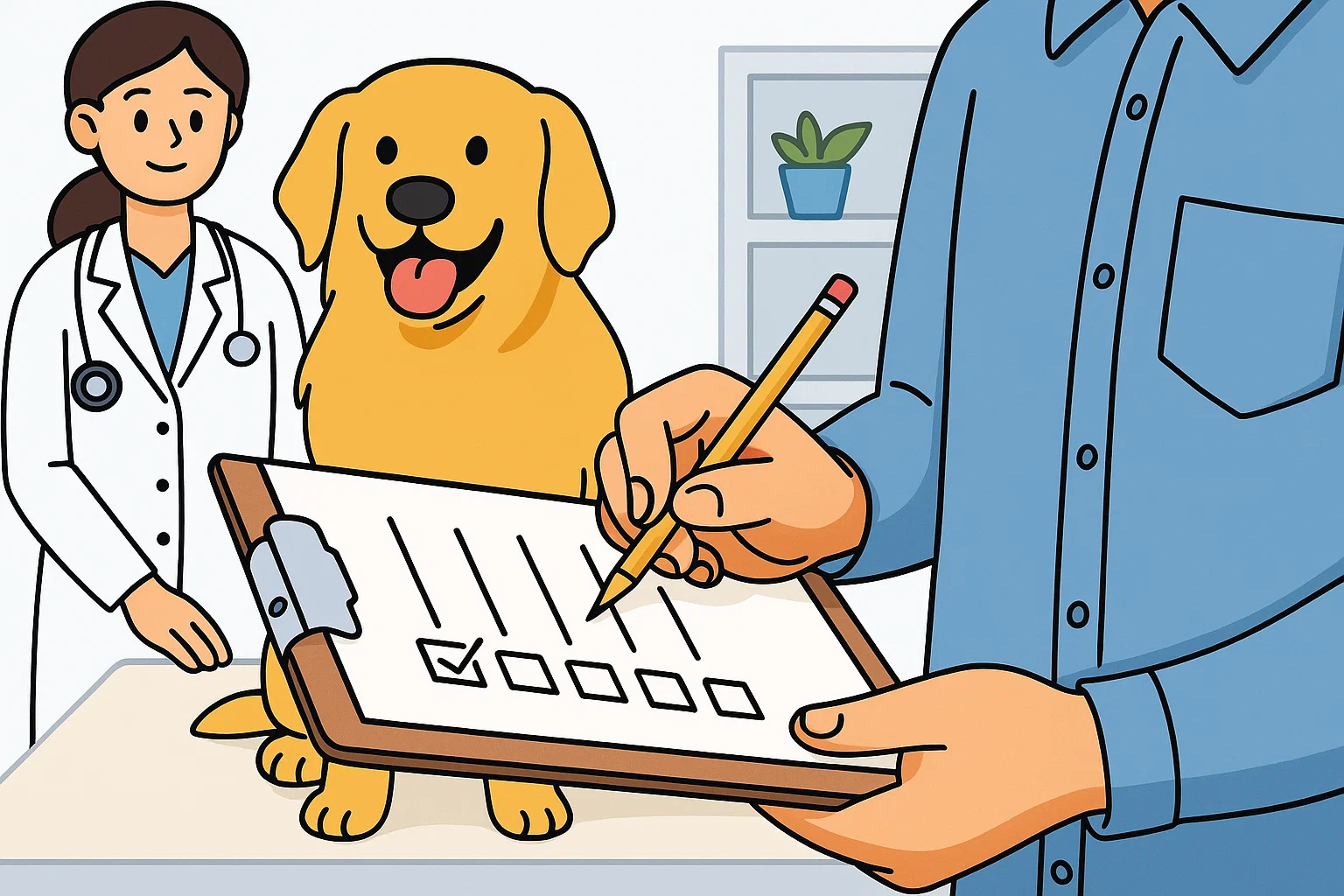Once you’ve narrowed down your list to one or two potential vets, set up an introductory appointment or a phone consultation. Here are important questions to ask:
1. What species do you specialise in?
While general practitioners can treat common pets, if you have a bird, reptile, or exotic animal, you’ll need a vet with specialised training. Don’t assume every vet clinic treats every species.
2. What are your clinic’s emergency policies?
Emergencies can happen anytime. Make sure you understand:
- Whether the clinic offers 24/7 care
- If not, where do they refer patients in emergencies
- How to reach someone after hours
3. Do you offer in-house diagnostics?
Quick access to lab work, imaging, and diagnostic tools can make a big difference in outcomes. Ask if they can:
- Run blood tests onsite
- Perform x-rays or ultrasounds
- Monitor hospitalisations overnight (or if they transfer)
4. What is your approach to preventative care?
Preventive care saves lives and money. Ask about:
- Vaccination protocols
- Dental health programs
- Parasite control (fleas, ticks, heartworms)
- Nutrition and weight management advice
5. How do you handle pain management and anaesthesia?
This is particularly important for surgeries and dental procedures. Ask:
- What pain management protocols they use
- How do they monitor pets under anaesthesia
- Whether they use pre-anaesthetic testing
6. Can I stay with my pet during procedures?
Some clinics allow owners to stay during exams or minor treatments; others don’t. Ask what their policy is, especially if your pet experiences anxiety at the vet.
7. Do you offer telemedicine or virtual consultations?
This became more common during the pandemic and remains convenient for follow-ups, medication questions, or minor issues.
8. What’s your philosophy on pet health care?
Some vets are more conservative, others more aggressive with diagnostics or treatments. Some may suggest holistic or alternative therapies. Make sure your vet’s philosophy aligns with yours.
Red flags to watch out for!
- Not all clinics will be the right fit. Be cautious of:
- Poor hygiene or disorganised offices
- Staff who won’t answer basic questions
- Vague or evasive communication
- Pressure to pursue expensive procedures without clear justification
- Unwillingness to provide written estimates or allow second opinions
Tips for making the final decision
Once you’ve gathered information, consider these final steps:
1. Visit the clinic without your pet
Take a tour, meet the staff, and observe how they interact with other clients and animals.
2. Read reviews
Check online reviews but take them with a grain of salt. Look for patterns in feedback (e.g., consistent praise for communication or complaints about billing).
3. Ask Local pet owners
Word-of-mouth is powerful. Ask neighbours, pet groups, or shelters who they recommend and why.
4. Evaluate their communication
Call or email with a general question (like hours, services, or insurance). How quickly do they respond? Are they helpful and polite?
5. Start with a wellness visit
Book a basic checkup and observe the process. If you and your pet both feel comfortable, you’ve likely found a good fit.
When to change vets
If you’re already with a vet but aren’t satisfied, it’s okay to switch. Signs it may be time to move on include:
- Poor communication
- Dismissive behaviour toward your concerns
- Repeated mistakes or missed diagnoses
- Unclear billing
- Your pet seems distressed every visit
- Your pet’s health and your peace of mind matter. You deserve a vet you can trust.
Conclusion
Choosing a vet isn’t just about proximity or cost—it’s about building a partnership for your pet’s well-being. A great veterinarian will offer more than medical expertise; they’ll provide compassion, support, and guidance through every stage of your pet’s life.
Take the time to research, visit clinics, ask questions, and trust your instincts. Whether you’re caring for a playful puppy, a shy rescue cat, or a curious bearded dragon, the right vet will make all the difference.
